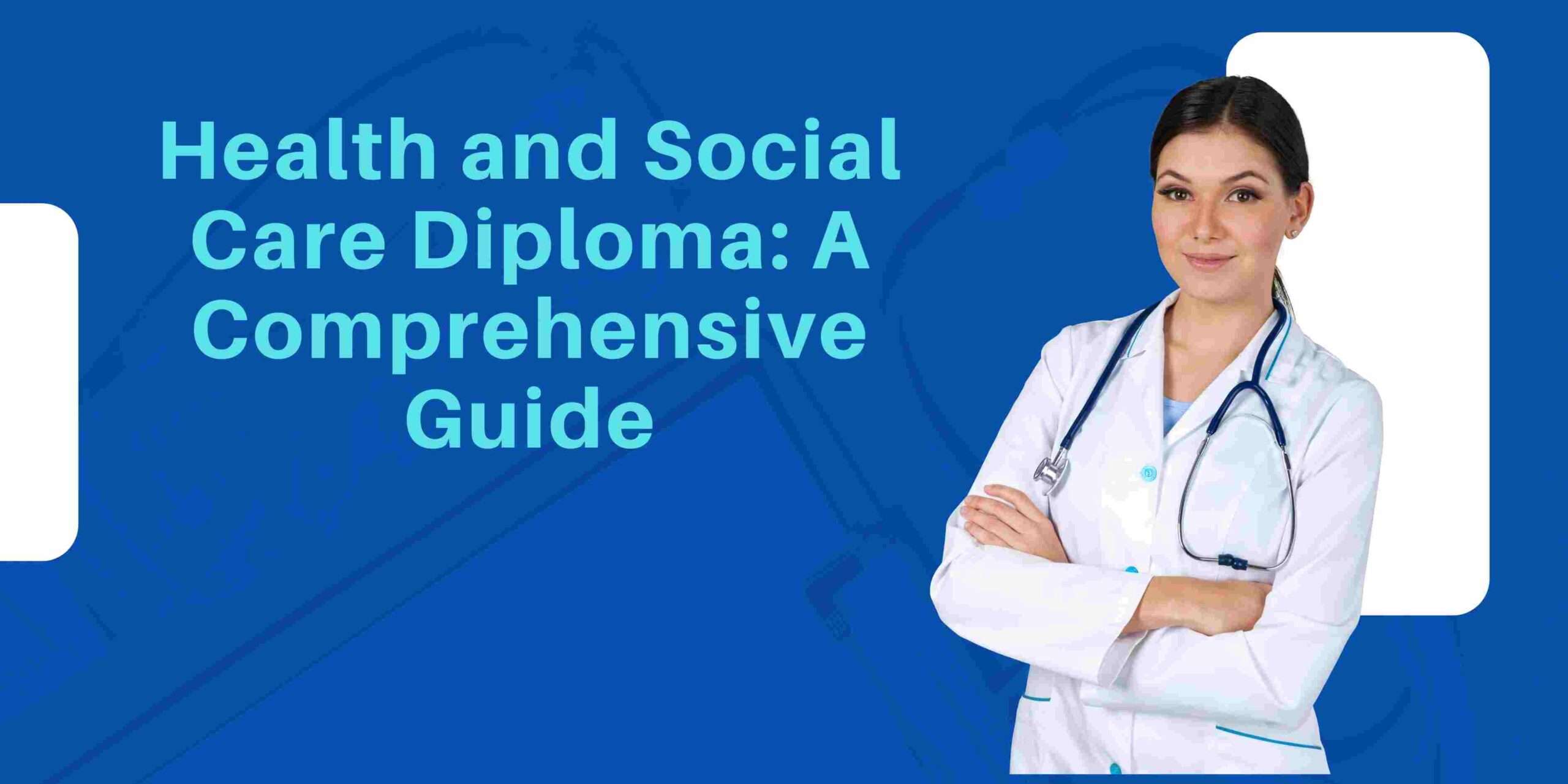Introduction
A Health and Social Care Diploma is an essential qualification designed for individuals aspiring to work within the healthcare or social care sectors. Recognized across the UK, this diploma offers foundational knowledge, practical skills, and competencies necessary to provide quality care and support to individuals in various settings.
Whether you aim to become a care assistant, support worker, healthcare assistant, or even progress to managerial roles, obtaining a Health and Social Care Diploma can be your gateway to a successful and fulfilling career.
What is a Health and Social Care Diploma?
A Health and Social Care Diploma is a vocational qualification aimed at equipping learners with the necessary skills and knowledge to work in various health and social care environments. This qualification is available at multiple levels, including Level 2, Level 3, Level 4, and even higher.
Key Features:
- Practical learning through real-world work experience.
- Recognition from regulatory bodies such as CQC (Care Quality Commission).
- Development of skills in communication, safeguarding, support planning, personal care, and ethical practices.
- Flexible learning options including full-time, part-time, and online courses.
- No formal exams – assessments are competency-based.
Types of Health and Social Care Diplomas
There are various levels of Health and Social Care Diplomas to choose from, depending on your career goals and experience.
Level 2 Diploma in Health and Social Care
- Designed for entry-level roles such as Care Assistants and Support Workers.
- Provides foundational skills in safeguarding, personal care, and communication.
- Ideal for those starting their careers or wishing to build on previous knowledge.
Level 3 Diploma in Health and Social Care
- A more advanced qualification aimed at those aspiring to supervisory or management roles.
- Covers topics such as leadership, professional development, communication, and promoting well-being.
- Recognized as equivalent to two A-Levels.
Level 4 Diploma in Health and Social Care Management
- Designed for managers and senior staff within healthcare environments.
- Focuses on leadership, strategic management, and advanced safeguarding practices.
- Acts as a stepping stone towards higher qualifications like NVQ Level 5 or degree-level studies.
Level 5 Diploma in Leadership for Health and Social Care
- The most advanced diploma level, ideal for those seeking top managerial positions.
- Covers aspects of strategic leadership, governance, policy development, and organizational management.
- Often required for Registered Manager roles in care homes and healthcare institutions.
How to Enroll in a Health and Social Care Diploma
Enrolling in a Health and Social Care is straightforward, but it requires careful planning and research.
Step-by-step Guide:
- Select Your Qualification Level: Determine whether you need Level 2, 3, 4, or 5 based on your career goals.
- Find an Accredited Training Provider: Ensure the institution is approved by awarding bodies like City & Guilds, Pearson Edexcel, or OCR.
- Meet Entry Requirements: This may vary depending on the level of the diploma. For Level 2, no formal qualifications may be required, while higher levels often require relevant work experience or previous qualifications.
- Choose a Learning Mode: Options include online courses, part-time study, or work-based learning.
- Enroll and Begin Learning: Attend classes, participate in practical assessments, and build a portfolio of evidence to demonstrate your competencies.
Career Opportunities with a Health and Social Care Diploma
This course can open doors to numerous career opportunities across various healthcare settings.
Popular Career Paths:
| Job Role | Average Salary (UK) |
|---|---|
| Care Assistant | £18,000 – £25,000 |
| Support Worker | £19,000 – £30,000 |
| Healthcare Assistant | £19,000 – £26,000 |
| Social Worker | £30,000 – £40,000 |
| Registered Manager | £35,000 – £50,000 |
Sectors Where You Can Work:
- Care Homes
- Hospitals
- Mental Health Services
- Community Care Settings
- Residential Care Facilities
- Special Educational Needs (SEN) Facilities
Benefits of Obtaining a Health and Social Care Diploma
- Increased Employment Opportunities – Widely recognized across the healthcare sector, enhancing employability.
- Skill Development – Gain practical skills in communication, leadership, and personal care.
- Career Progression – Qualification enables advancement to higher-level roles.
- Flexibility – Available through online learning, making it accessible to various individuals.
- Industry Recognition – Approved by relevant authorities, ensuring credibility and value.
Challenges and How to Overcome Them
Completing a this course can be challenging due to the rigorous nature of the coursework and practical assessments.
Common Challenges:
- Balancing work and study.
- Understanding complex healthcare policies.
- Meeting competency requirements for assessments.
Overcoming Challenges:
- Effective time management.
- Seeking guidance from mentors and tutors.
- Utilizing online resources and study aids.
- Setting realistic goals and maintaining consistency.
Conclusion
Achieving this course is an excellent step toward a rewarding career in the healthcare or social care sector. Whether you choose to pursue a Level 2 qualification to begin your journey or aim for a Level 5 diploma to secure senior management roles, the opportunities are vast and varied.
Take your time to research available courses, choose a recognized provider, and start your path towards a fulfilling career in health and social care.
Read More: NVQ Level 5 Management in Health and Social Care: The Ultimate Guide







